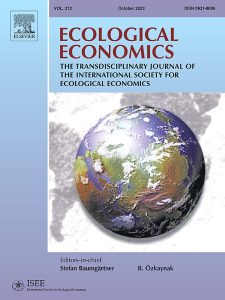Pathways to stringent carbon pricing:
Configurations of political economy conditions
and revenue recycling strategies.
A comparison of thirty national level policies
Ecological Economics – Volume 214, December 2023
Highlights
- Revenue recycling is crucial factor in stringent carbon pricing policy.
- The most effective political strategy is a hybrid use of revenues.
- Compensation is critical to implementing higher carbon prices, in most countries.
Abstract
There is general agreement among economists and climate policy practitioners that carbon pricing should play a central role among all policies used to tackle climate change effectively. However, in most jurisdictions that have adopted carbon pricing mechanisms, the prevailing price levels remain too low to accelerate decarbonization and drive down emissions. This deficiency can be attributed to numerous political economy constraints, but most pressingly, to the negative distributional effects of the policies combined with the drain they impose on firms’ competitiveness. These factors negatively influence the public acceptability of these policies and, thus, the feasibility of introducing ambitious carbon pricing. Recent innovations in the literature suggest that using the revenue from carbon pricing for specific social purposes may ease this political impasse. This study analyzes which revenue recycling strategies are effective, in various political economy environments, to support stringent carbon pricing. Employing the method of fuzzy-set Qualitative Comparative Analysis, this research draws findings from a cross-case comparison of thirty national-level policies. The salient conclusion is that hybrid use of carbon revenue that combines various compensatory schemes and spending on climate projects is the most effective strategy to enhance stringency, while a lack of compensation renders the introduction of ambitious carbon pricing implausible, even in some highly developed countries.
Keywords:
- Carbon pricing
- Revenue recycling
- Political economy
- Qualitative comparative analysis
- QCA
- Climate policy stringency




